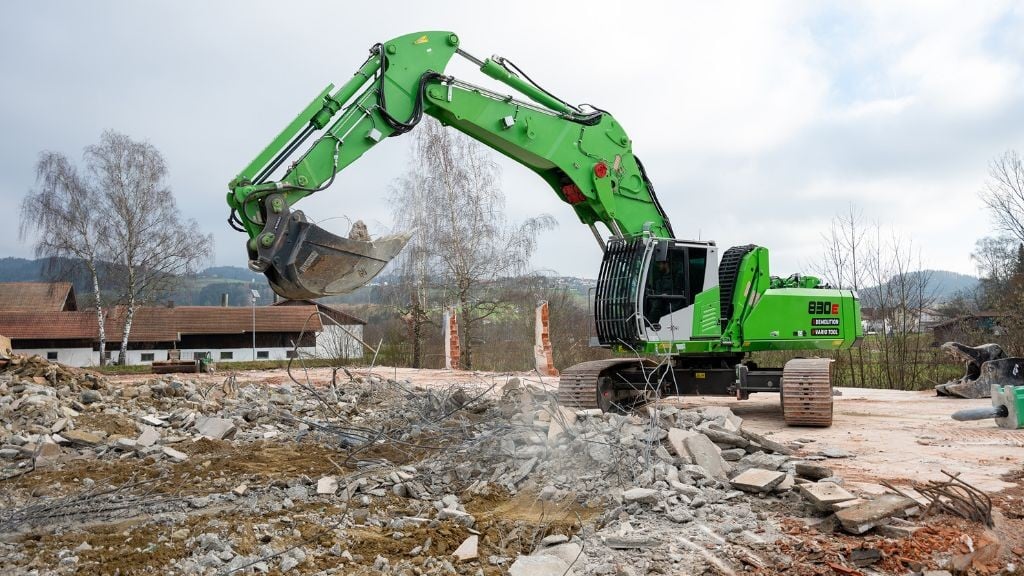Built from scratch 30 years ago, Richard Forster's company has now developed into an industry specialist with 27 employees. The recycling professional from Steinkirchen, Germany, has always been focused on the processing of contaminated soil, gravel, stone, litter, construction rubble and waste from sewer cleaning.
The company comprises three landfills, as well as a thermal processing plant, which transforms contaminated rock or debris into perfectly recyclable material. Forster's regular customers include a large number of road construction companies and municipalities, district and water management offices, as well as the German National Railways, for which he regularly recycles track ballast.
New crusher for track ballast and concrete recycling
Richard Forster has been using mobile crushers for processing granite, track ballast and construction debris for quite some time, however those crushers were always rented from a contractor.
"With our own crusher, we can process the material at any time, which increases our flexibility," said Forster. He has been looking for a mobile crusher in the 35-ton range and tested few, including the Rockster impact crusher R1100DS with screening system and CAT C9 STAGE V engine.
"We wanted to get an idea of the performance and operation of the crusher. My machine operators, in particular, have to be convinced of the system, because they are supposed to work efficiently with it," he continued.
Accessibility, hydraulic drive and transport dimensions were key arguments
Rockster offered Forster the opportunity to put the R1100DS to test at the company's own recycling center.
"The large openings and good access to the engine compartment make service and maintenance easier," commented Forster. "We also have much better experiences with hydraulic drives as is the case with Rockster's fully hydraulic drive in comparison with diesel-electric drives, where you have to expect cable breaks and which are usually more sensitive to dust or vibrations."
He said since the crusher is used on multiple locations, i.e. the recycling site and at the company's own gravel quarry or landfills, transport was also an important issue.
"I like the fact that we don't have to disassemble anything on the R1100DS to transport it, just fold in the screening system and drive it onto the flat-bed trailer," explained Forster.
Performance and end product quality are top priority
Forster and his team most often produce 0/60 material for underground stabilization from broken concrete or mixed rubble. The granite gravel from the railroad is processed to 0/16 or 0/32 mm end product, which is ideal for road construction as an underfill or for land consolidation.
"Performance and material quality are really excellent, the composition of fine and coarse fraction is exactly right for our customer requirements," explained Forster. "The attached air blower also works perfectly. It has the optimal suction to blow away non-aggregate materials such as polystyrene, textiles, wood parts, plastic or ytong parts. This light material is collected directly in a container, which is surrounded by a net, and can then be disposed of. So, everything is done in one step."
Rockster sales manager Norbert Feichtinger added: "I was immediately convinced that we could supply the most optimal system for Forster Recycling, since we use our impact crushers particularly for construction rubble and granite processing and therefore have extremely good experience."
Company info
2155 S Amherst Hwy
Amherst, VA
US, 08037
Website:
rocksternorthamerica.com
Phone number:
1-434-381-8881



